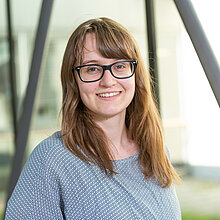Search
Displaying results 541 to 549 of 732.

Annika Scharf
PhD Student
Innate Immunity and Infection
HZI Campus

Martina Grashoff
Technical Assistant
Innate Immunity and Infection
HZI Campus

David Fritzsch
Guest-PhD Student
Innate Immunity and Infection
HZI Campus

Lisa Seiler
Guest-PhD Student
Innate Immunity and Infection
HZI Campus

Angela Wedekind
Guest-PhD Student
Innate Immunity and Infection
HZI Campus

Sarah Schreier
Guest-PhD Student
Innate Immunity and Infection
HZI Campus

Prof Dr Rolf Müller
Head of Research Group
Microbial Natural Products
HIPS

Alina Paukstadt
Clerk
HZI Campus

Christoph Beth
Head of Staff Unit
HZI Campus